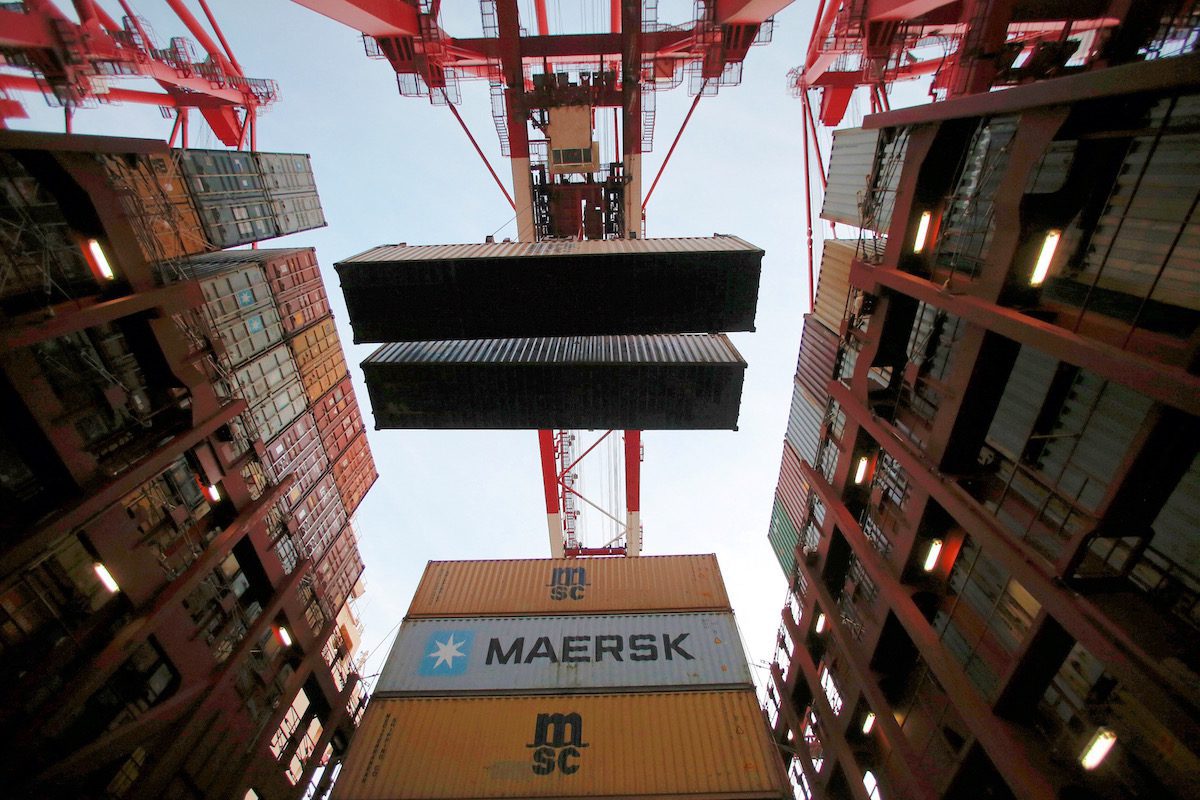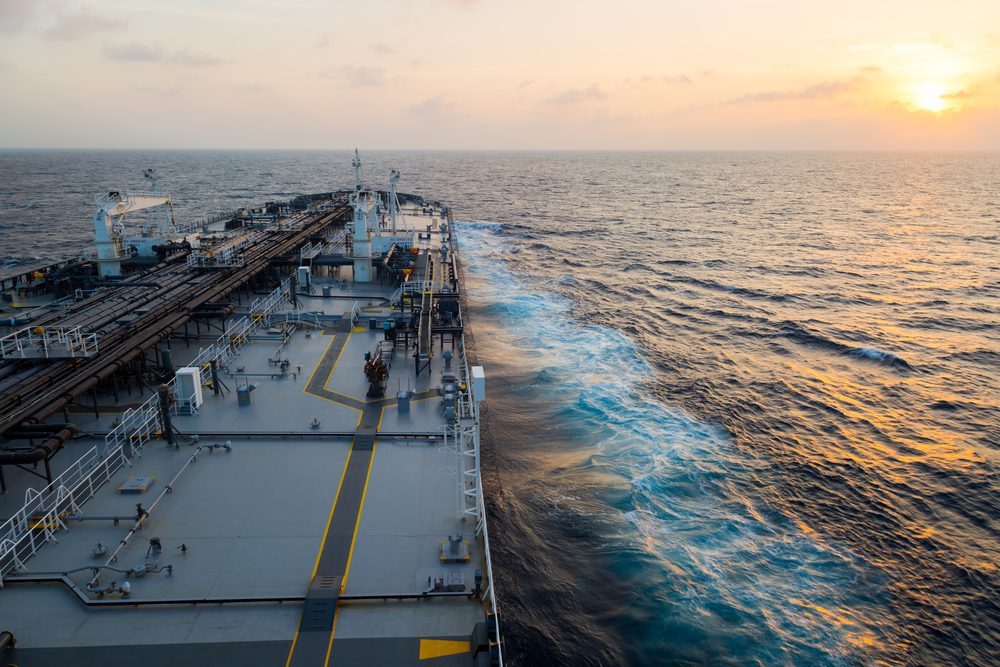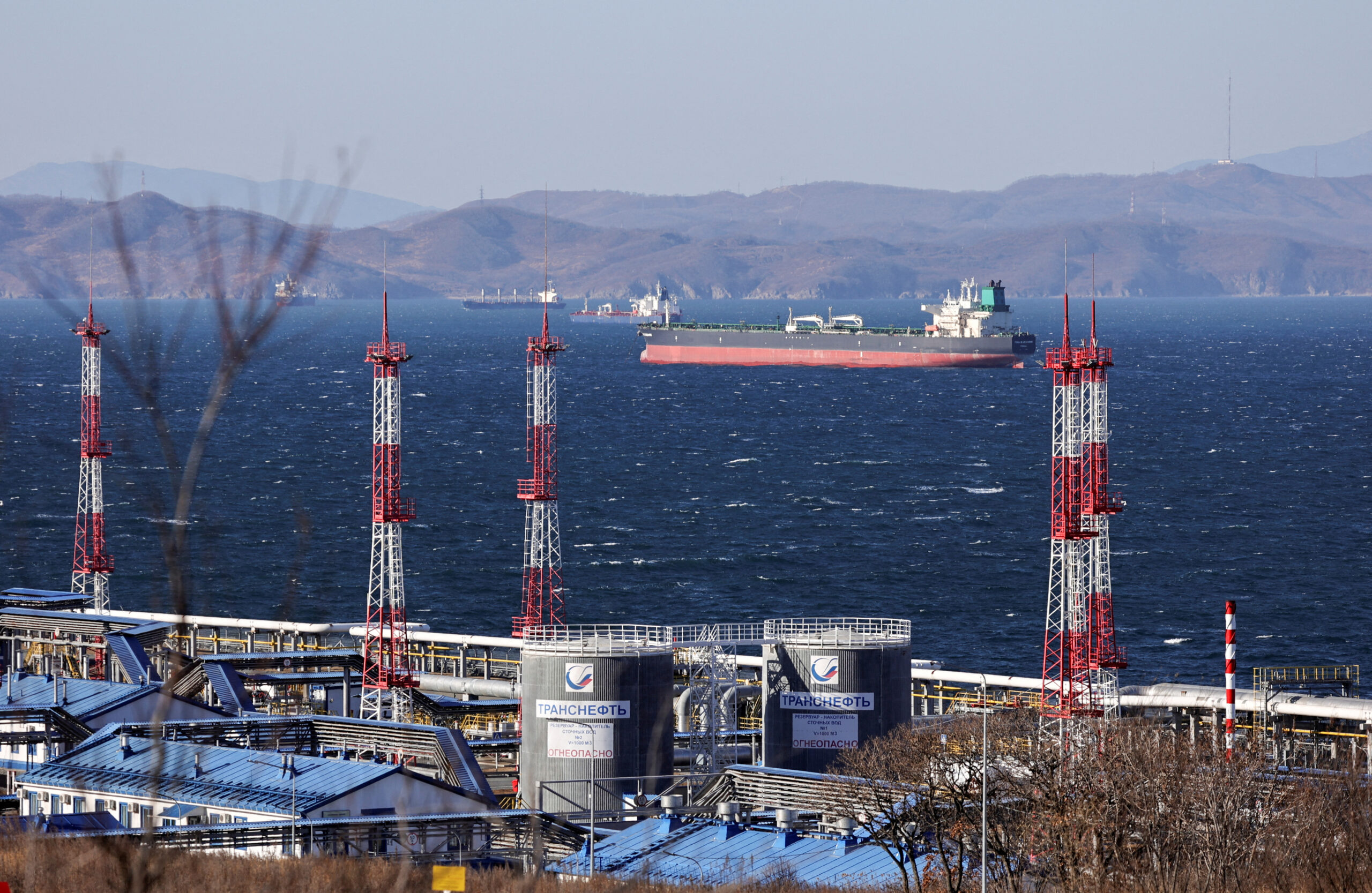Containers are seen unloaded from the Maersk’s Triple-E giant container ship Maersk Majestic, one of the world’s largest container ships, at the Yangshan Deep Water Port in Shanghai, China, September 24, 2016. REUTERS/Aly Song
By Christian Wienberg and Nicholas Brautlecht
(Bloomberg) — A.P. Moller-Maersk A/S, owner of the world’s largest container line, said mergers like the combination of its three main Japanese rivals provide relief to an ailing industry that has been characterized by over-capacity.
Nippon Yusen KK, Mitsui O.S.K. Lines Ltd. and Kawasaki Kisen Kaisha Ltd. said on Monday they plan to merge, giving them control of 7 percent of the world’s container-shipping trade. Its the latest example of industry measures to create scale in an effort to adapt to a world in which freight rates have been under pressure since 2007.
Soren Skou, Maersk Line’s chief executive officer who also runs the Maersk group, said last month the Copenhagen-based company will stop buying new ships and instead try to expand through takeovers.
“We welcome consolidation,” Mikkel Elbek Linnet, a spokesman for Maersk Line, told Bloomberg in an e-mailed reply to questions. “Our industry is fragmented and consolidation can help transform our business for the benefit of our customers.” The comments come as Maersk puts its group structure under strategic review. Management has said it wants to split the energy business off from its transport operations.
An excess of vessels and weak trade growth have driven container lines to try to under-bid each other on the rates they offer clients. The climate has proven lethal for some industry members, with South Korea’s biggest line Hanjin Shipping Co. filing for bankruptcy protection in August. Maersk Line may be interested in buying parts of the company, David Kerstens, a transport analyst at Jefferies International Ltd., said last month.
Efforts to date to consolidate have included agreements in parts of the industry to share ships, to avoid the cost of building up individual fleets. But Maersk says that may be a less effective way to achieve scale than outright mergers.
“What we see is a consolidation wave,” Linnet said. “How big it turns out to be, is difficult to say. Consolidation can unlock fixed and variable cost efficiencies not possible in a Vessel Sharing Agreement.”
For updates on the Japanese merger plan, click here.
Maersk, which hasn’t made a large acquisition in more than a decade, is in an vessel alliance with the world’s No. 2, Mediterranean Shipping Co. The Danish conglomerate is due to report third-quarter earnings on Nov. 2. Of the 29 analysts covering Maersk, only three recommend selling the shares. Fifteen advise clients to buy the stock, while the rest are telling investors to hold on to their shares.
SEB, which has a hold rating on Maersk’s stock, said the shipping unit’s profitability “will be largely determined by cost cuts and utilization,” as results published by peers suggests the industry continues to be under pressure, according to a note.
Customers who use Maersk don’t see much relief for the industry ahead, even if consolidation continues.
“There might be a short-term increase in container rates, but it doesn’t change the structural problems,” Jens Lund, chief financial officer at DSV A/S, said by phone on Tuesday. DSV is the world’s fourth-largest freight-forwarder, handling about 1.2 million 20-foot containers a year.
“There’s a lot of overcapacity out there and neither bankruptcies nor mergers will remove any of the world’s container ships, they just change the ownership situation,” Lund said.
The Japanese trio planning to merge is part of a vessel-sharing group known as The Alliance. The deal means that Hapag-Lloyd AG will lose its dominance, according to Thomas Wybierek, an analyst at NordLB. The dynamic in The Alliance has also shifted since Hanjin went bankrupt.
The three Japanese container lines will probably get merger approval from the relevant competition authorities, according to Peter Sand, an analyst at BIMCO, which represents ship owners and operators in about 130 countries.
“Consolidation is one of the remedies to cure the horrible market,” Sand said in an e-mailed reply to questions. “But for scale to be important you must be able to exercise pricing power in all or certain markets. The industry still has some way to go on that one.”
Nippon Yusen, Mitsui OSK and Kawasaki Kisen will invest a total 300 billion yen ($2.86 billion) in the venture, which is expected to result in a ‘synergy’ of 110 billion yen annually. All the three Japanese companies on Monday forecast operating losses for this fiscal year.
“Consolidation is a step towards digitization and a better online customer experience as it enables the larger carriers to drive this industry transformation together,” Maersk Line’s Linnet said.
© 2016 Bloomberg L.P

 Join The Club
Join The Club











